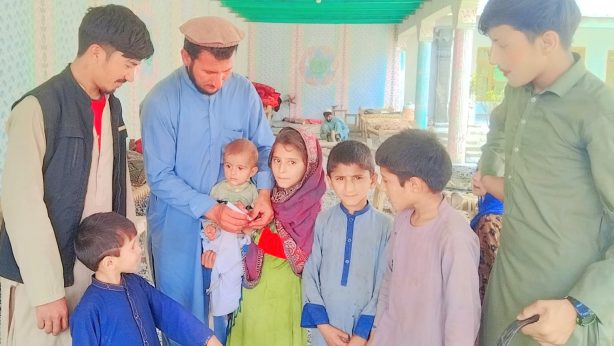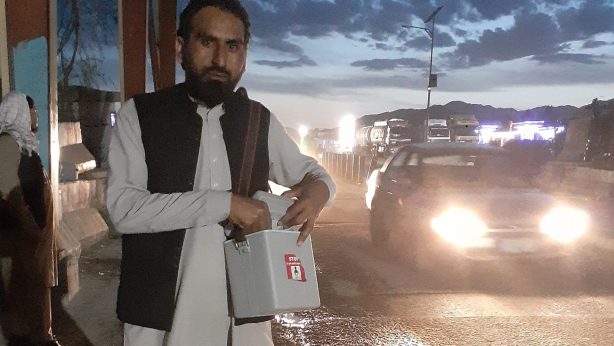UNICEF’s 7-Ton Medical Aid: A Major Step Toward Solving Health Challenges in Zabul

Saeed Zabuli
Zabul, Afghanistan – As part of a recent initiative, UNICEF (United Nations International Children’s Emergency Fund) provided 7 tons of medical aid to 47 health centers across 11 districts in Zabul province.
Provincial officials stated that this aid will not only increase the capacity of health centers but also improve the availability of public health and vaccination services for local residents.
Dr. Mirwais Afghan, head of Public Health in Zabul, noted that the aid includes vaccines, various medicines, anti-malnutrition supplements for mothers and children, and other medical supplies.
He further explained that the aid will be distributed to health centers in 11 districts, including Shamulzayi, Atghar, Shinkay, Naw bahar, Shahjoy, Siyori, Arghandab, Mezana, Shahr-e Safa, Khak-e Afghan, and Day Chopan.
“With this aid, there will be a noticeable improvement in treatment services for patients and vaccination services for children in these centers,” Afghan said.
“From now on, health centers in Zabul will be able to provide patients with timely and standardized medicine, speeding up treatment and making it more effective. In addition, families will have easier access to vaccines for contagious diseases like polio, and they will be able to easily get their children vaccinated at any health center,” he added.
Afghan expressed gratitude to UNICEF for the assistance and hoped for continued support in the future.
Residents of Zabul also expressed their appreciation for UNICEF’s aid and hoped that it would lead to improvements in the quality of health services in local health centers.
Abdullah, a resident of Shahjoy district who had brought his four-year-old son to the local health center for polio vaccination, said: “This aid is vital for us. Our economic situation is challenging, and we cannot afford to buy medicine when our family members fall ill. I thank UNICEF for providing free medicine and vaccination services in our health centers.”
He urged others to take advantage of these services by bringing their children to health centers for vaccinations against polio and other childhood diseases.
Rahimullah, a resident of Zabul’s capital, Qalat, stated that at times, health clinics faced shortages of medicine, but with the aid from UNICEF, that issue will be resolved.
Haji Samiullah, a tribal elder from the province, also praised UNICEF’s support, stating that the organization has consistently shown solidarity with the people of Zabul in various sectors.
He added that UNICEF is actively working in the province to improve children’s health, education, nutrition, and safety, efforts for which the local community is deeply grateful.
UNICEF was established by the United Nations in 1946 to initially provide assistance to children and families affected by World War II.
Over time, its mission expanded, and today it works globally, including in Afghanistan, to improve the lives of children, mothers, and vulnerable communities.
The organization primarily focuses on children’s health, education, nutrition, and protection, with the aim of safeguarding children’s rights and ensuring a healthy and secure future for them.
UNICEF runs vaccination campaigns, builds schools, provides clean water, and implements child protection programs to meet children’s needs and create a better environment for their development.


